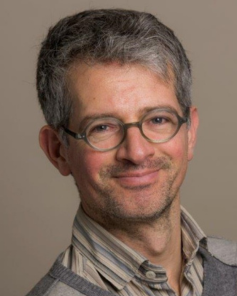Plenary Speakers

Alexandre Briot
Group Artificial Intelligence Manager, Applied Machine Learning Team, Valeo Senior Expert
Alexandre Briot received the Engineering Degree from Telecom Paris Tech, France in 2001 and a masters degree in AI from Pierre and Marie Curie University, Paris in 2002. He was a Signal Processing and Machine Learning engineer in Parrot R&D department for more than 10 years. He joined Valeo in 2018 and he is now managing an Applied Machine Learning team whose mission is to implement internally AI-powered use cases to accelerate Valeo AI transformation.
Abstract title: Artificial Intelligence: Transforming the Engineering Landscape
Abstract: Artificial intelligence (AI) is rapidly evolving and offers a wide array of uses. From simple statistical tools and machine learning models to sophisticated deep learning and large language models, AI has the potential to revolutionize engineering. It can automate processes, accelerate design exploration, and enable more natural human-machine interaction through language. Industry leaders recognize the transformative power of AI and are embracing it to gain a competitive edge.
This presentation begins with a refresher on key definitions and concepts in machine learning, emphasizing the crucial role of data. We’ll then focus on the exciting potential of generative AI, exploring both its promise and current limitations. Finally, we’ll bring it all together, exploring practical use cases and demonstrating how AI can be applied to enhance EMC activities.

Jean-Christophe Crébier
CNRS senior researcher, G2Elab, Grenoble Electrical Engineering Lab, member of Power Electronics group
Jean-Christophe Crébier received the Ph.D. degree in power electronics, EMC for PFC converters, from INP Grenoble, Grenoble, France, in 1999. Since 2001, he is CNRS researcher at Grenoble Electrical Engineering Laboratory (G2ELab), in the field of power electronics. Since 2019, he is focusing his research activities on sustainable power electronics, eco-design, lifespan extension, components and sub-systems reuse, repair and repurposing toward the emergence circular economy in power electronics.
Abstract title: Toward sustainable power electronics technology, state of the art and perspectives.
Abstract: Global warming has brought to light the multiple environmental impacts of our modern societies. Advanced and modern technologies, very often seen as upcoming solutions to breakdown environmental impacts, are also responsible of most of waste, pollutions and rebound effects. Decarbonation, which is a requirement, may also lead to impact transfer inducing pressure on material depletion, and multiple pollution and waste generation. We are urged to tackle technologies that are compatible with the planetary boundaries!
The presentation outline the limits of actual eco-design/eco-optimization approaches to introduce the need to investigate design approaches less sensitive to rebound effects and impact transfers. Then it focuses on the design methods, metrics and concepts expected to engage power electronics and more widely electronics toward circular economy. Socio-economic and regulation considerations are introduced as key enablers of sustainable technologies.